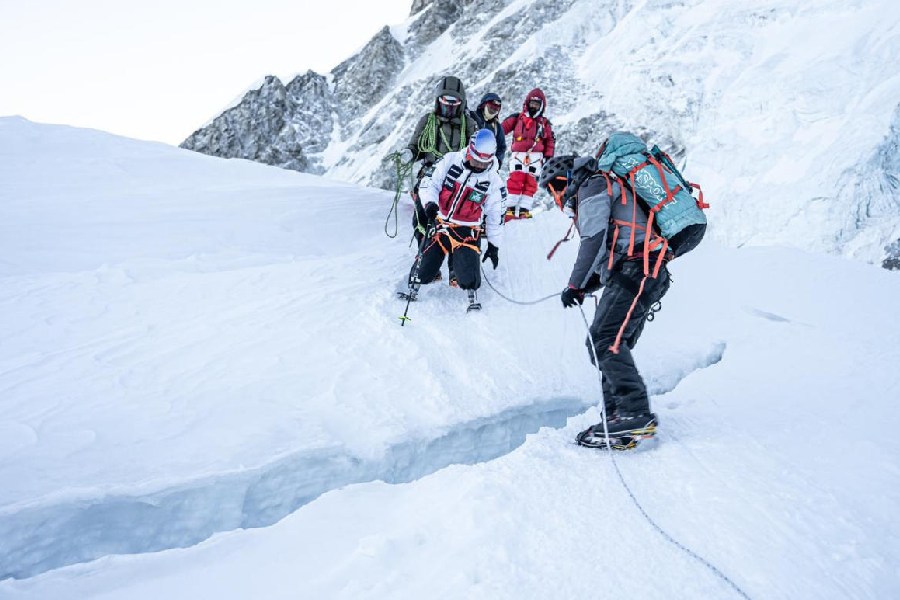Hari Budha Magar, who had both his legs ripped off by a bomb in Afghanistan in 2010, has summited Mount Everest to become the first double above-knee amputee toscale the world’s highest peak.
Mark Hayward, managing director of London-based Sway PR which is part of Magar’s team, said: “After a superhuman effort, we’re delighted to announce that Hari Budha Magar has summited Mount Everest as the first ever double above knee amputee to stand atop the world’s tallest mountain.”
Magar conquered the world’s highest peak at 3pm on Thursday and returned to the Everest base camp on Saturday. Some members of his team are still on their way to the base camp.
Following his successful expedition, Magar said: “That was tough. Harder than I could have imagined. We just had to carry on and push for the top, no matter how much it hurt or how long it took.”
Magar, 43, and his team started the expedition from the base camp on May 6.
The enormity of Magar’s endeavour can be gauged from the fact that while other climbers of his team took three-and-a-half hours to cross the route along an icefall, he needed 11 hours to complete the same task.
During this climbing season, eight people have lost their lives so far, including an Indian citizen Suzanne Leoplodina Jesus. The 59-year-old climber from Maharashtra was attempting to become Asia’s first woman on a pacemaker to scale Everest. The climber, however, died after falling sick at the base camp on Thursday.
Magar said he had self-belief that he “was not going to die anywhere in the world if I’m not meant to die”.
“My team said it’s not safe here, we need to move fast, I just told them that sorry, I can’t move faster, I need to take a breath.... This I learnt in Afghanistan where I was the 10th person in a 20-person squad walking in single file. Why was I blown up, not the first to 9th persons?” said Magar.
Magar, who hails from Nepal, lost both his legs in 2010 when he stepped on an improvised explosive device (IED).
Magar retired from the 1st Royal Gurkha Rifles in 2014 and settled in England but decided to do things to inspire the differently-abled.
The army veteran had climbed Ben Nevis in Scotland, Mont Blanc in Europe, and Mera Peak and Gosainkunda in Nepal as part of his training to climb Everest.
He also kayaked around the Isle of Wight in England and sky-dived around Everest last year.
However, his journey was not smooth. Despite financial constraints, Magar had decided to climb Mt Everest in 2018. However, the Nepal government banned double amputees and the blind from climbing the peak in December 2017.
Magar, who was training in the mountains of Nepal, had to pack up and head to Kathmandu to support people who were against the ban. The ban was subsequently overruled by Nepal’s Supreme Court in 2018.
While Magar was preparing afresh, the Covid-19 pandemic once again halted his dream.
Magar was accompanied by Krish Thapa, a former chief mountain instructor at the Special Air Service (SAS) of the British Army, along with other UK and US veterans.
“I had first planned this expedition in 2018, but it feels a little more special to celebrate the 70th anniversary of Everest's first summit, with another world first,” says Magar.
Darjeeling climber Tenzing Norgay and New Zealander Sir Edmund Hillary were the first to climb Mt Everest on May 29, 1953.
Magar’s climb is supported by over 30 organisations and over 600 individuals. Through this climb, Magar is also raising funds for five veteran charities with an aim of raising over £884,900, the height of Everest in metres plus two zeros.











